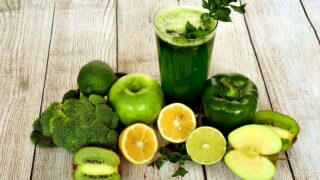Introduction
In recent years, the growing trend towards health consciousness has brought significant attention to the “plant-based diet.” Many people are shifting away from meat and animal products, focusing instead on plant-based foods to achieve a healthier lifestyle. However, the plant-based diet is not just a trend; it is an effective diet method backed by scientific evidence. This article will provide an in-depth look at the fundamentals of a plant-based diet, including its specific methods, features, pros, and cons. Additionally, we will offer practical advice for successfully implementing a plant-based diet and share feedback from individuals who have tried it. Whether you are interested in plant-based dieting, aiming for a healthier diet, or already practicing it, this article aims to provide valuable information. Please read on to the end.
Table of Contents
- What is a Plant-Based Diet?
- How to Implement a Plant-Based Diet?
- What are the Features of a Plant-Based Diet?
- What are the Pros of a Plant-Based Diet?
- What are the Cons of a Plant-Based Diet?
- Conclusion
- Frequently Asked Questions (FAQ)
What is a Plant-Based Diet?

A plant-based diet focuses on minimizing animal products and primarily consuming plant-based foods. This diet includes vegetables, fruits, legumes, whole grains, nuts, and seeds, all of which are high in nutritional value. By substituting meat and dairy products with plant-based alternatives like tofu, tempeh, and almond milk, you can maintain your health while enjoying delicious meals.
How to Implement a Plant-Based Diet?

To successfully practice a plant-based diet, consider the following methods:
1. Reduce Animal Products
Start by cutting back on meat, dairy, and eggs, and replace them with plant-based foods. For example, choose fruit and oatmeal for breakfast and a salad with legumes for lunch.
2. Actively Consume Plant-Based Proteins
Select foods rich in plant-based proteins. Legumes, nuts, seeds, and whole grains are beneficial for maintaining muscles and providing energy.
3. Consider Nutritional Balance
Since certain nutrients like Vitamin B12, iron, and calcium can be harder to obtain, consider using supplements. Additionally, a balanced diet ensures you get all the necessary nutrients.
4. Enjoy Cooking
Trying new recipes can be one of the joys of a plant-based diet. Look for plant-based recipes online or in cookbooks and enjoy a variety of meals.
5. Consistency is Key
Dieting is about long-term commitment. Find a method that works for you and stick with it.
What are the Features of a Plant-Based Diet?

The plant-based diet has several notable features:
1. High Nutritional Value
Vegetables, fruits, and legumes are rich in vitamins, minerals, and dietary fiber, which support overall health.
2. Low in Calories
Plant-based foods generally have fewer calories and provide a sense of fullness, helping to prevent overeating.
3. Environmentally Friendly
The production of plant-based foods requires less water and energy compared to animal products, making it more sustainable for the environment.

What are the Pros of a Plant-Based Diet?
1. Effective Weight Management
A plant-based diet naturally reduces calorie intake, making it easier to maintain a healthy weight.
2. Reduces Risk of Heart Disease and Diabetes
Many studies show that plant-based foods can lower the risk of heart disease and diabetes.
3. Improved Digestive Health
The high fiber content in plant-based foods enhances digestive health and can alleviate constipation.
4. Potential for Better Skin
Vitamins and antioxidants found in plant-based foods may contribute to healthier skin.
What are the Cons of a Plant-Based Diet?
1. Potential Nutrient Deficiencies
Nutrients such as Vitamin B12, iron, and calcium can be harder to obtain, possibly necessitating the use of supplements.
2. Time-Consuming Meal Preparation
Trying new recipes and sourcing ingredients can make meal preparation time-consuming.
3. Limited Dining Options
There are often fewer plant-based menu options when dining out, limiting choices.
Conclusion
A plant-based diet offers numerous benefits, including effective weight management, disease prevention, and improved skin health. However, it’s important to consider the nutritional balance and make informed choices about food and supplements. The key to success is to find a sustainable method that you can consistently follow.
Frequently Asked Questions (FAQ)

Q1. Is a plant-based diet suitable for everyone?
A1. Yes, it is generally suitable for everyone, but pay attention to nutritional balance. Consult a doctor if you have specific health conditions.
Q2. How can I supplement Vitamin B12?
A2. Since Vitamin B12 is abundant in animal products, consider using supplements or fortified foods to meet your needs.
Q3. Can I maintain muscle on a plant-based diet?
A3. Yes, you can. Ensure you consume plant-based proteins such as legumes, nuts, and whole grains.
Q4. What are some tips for choosing plant-based options when dining out?
A4. Opt for salads and dishes with legumes. Checking the menu in advance can also help.
Q5. What is the first step to starting a plant-based diet?
A5. Gradually reduce animal products and increase your intake of plant-based foods.
Meta Description and Tags
A comprehensive guide to plant-based diet methods, features, pros, and cons. Practical advice for achieving a healthier lifestyle through plant-based eating.
plant-based diet, plant-based diet methods, features, pros and cons, health, diet, plant-based foods, weight management, heart disease, diabetes, digestive health, skin health
Internal Link
Effective Dieting: Exercise and Dietary Methods for Health
URL: https://konta-syoko.com/
External Link
Latest Information on Plant-Based Diet (Japan)
URL: https://www.e-healthnet.mhlw.go.jp/information/diet/food/f-03-004.html



